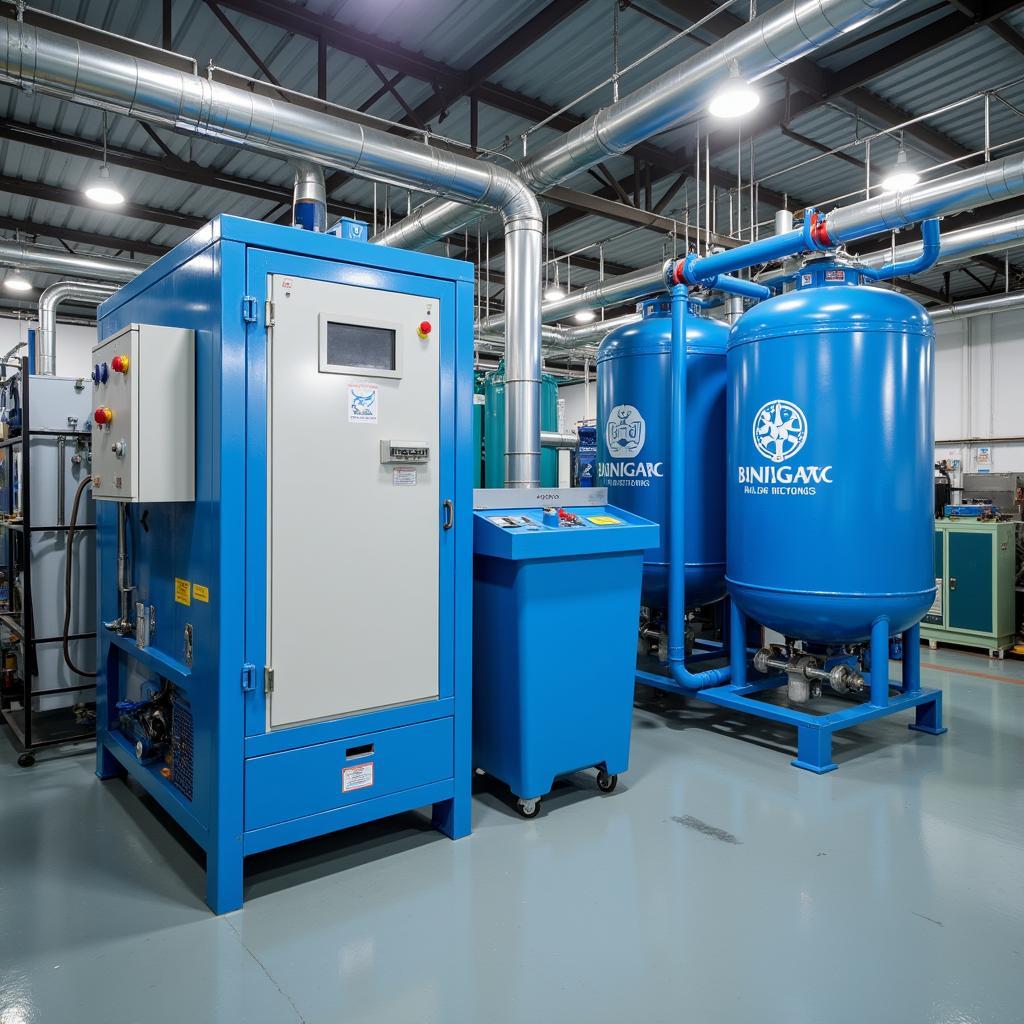The ASEAN refrigerant recovery and recycling program is crucial for environmental sustainability and economic growth within the region. This initiative addresses the growing concern of refrigerant leaks contributing to ozone depletion and climate change. By promoting proper handling and management of refrigerants, ASEAN nations are taking proactive steps towards a greener future. Learn more about this vital program and its impact on the region.
Refrigerant recovery and recycling is not just an environmental issue; it’s an economic one too. By investing in this program, ASEAN countries are creating new opportunities in the green sector, fostering innovation, and contributing to a more circular economy. The transition to more environmentally friendly refrigerants and the implementation of efficient recovery and recycling practices will require skilled technicians, leading to job creation and economic diversification. This proactive approach sets a precedent for sustainable development within the region and beyond. Check out more information about ASE refrigerant pdf.
Understanding the Importance of Refrigerant Recovery and Recycling in ASEAN
Why is Refrigerant Management Crucial for ASEAN?
The ASEAN region, with its rapidly developing economies and increasing reliance on refrigeration and air conditioning, faces a significant challenge in managing refrigerants. Improperly handled refrigerants, such as hydrofluorocarbons (HFCs), are potent greenhouse gases that contribute significantly to climate change. The ASEAN refrigerant recovery and recycling program aims to mitigate these risks by promoting responsible practices throughout the lifecycle of refrigerants. This involves recovering refrigerants from equipment, recycling them for reuse, and minimizing their release into the atmosphere.
What are the benefits of proper refrigerant management?
- Reduced greenhouse gas emissions
- Protection of the ozone layer
- Improved energy efficiency
- Creation of green jobs
- Promotion of sustainable development
The Impact of Leaking Refrigerants on the Environment
Leaking refrigerants have detrimental effects on the environment. HFCs, commonly used in refrigeration and air conditioning systems, have a global warming potential thousands of times greater than carbon dioxide. When released into the atmosphere, these gases trap heat and contribute to the greenhouse effect, leading to climate change and its associated consequences, such as rising sea levels, extreme weather events, and disruptions to ecosystems. You can learn more about the certification process through this link: ASE freon certification.
How can we minimize refrigerant leaks?
- Regular maintenance and inspection of equipment
- Proper installation practices
- Training and certification of technicians
- Use of leak detection technologies
- Adoption of environmentally friendly refrigerants
Implementing the ASEAN Refrigerant Recovery and Recycling Program
Key Strategies and Initiatives
The ASEAN refrigerant recovery and recycling program involves a multi-pronged approach. This includes developing national regulations and standards for refrigerant management, promoting the adoption of best practices, providing training and certification programs for technicians, and raising public awareness about the importance of responsible refrigerant handling. The program also encourages the development and use of climate-friendly alternatives to HFCs.
“The ASEAN refrigerant recovery and recycling program is not merely a regulatory framework, but a commitment to a sustainable future. It empowers local communities and businesses to contribute actively to environmental protection while fostering economic growth,” says Dr. Anya Sharma, a leading environmental expert in Southeast Asia. For further details on licensing, refer to ASE refrigerant license.
 Modern Refrigerant Recycling Facility in ASEAN
Modern Refrigerant Recycling Facility in ASEAN
Challenges and Opportunities
Implementing the ASEAN refrigerant recovery and recycling program presents both challenges and opportunities. One key challenge is ensuring consistent enforcement of regulations across different countries within the region. Another challenge is the cost of transitioning to new technologies and training technicians. However, these challenges also present opportunities for innovation, investment, and job creation in the green sector.
“Investing in training and certification programs is essential for the success of this initiative. A skilled workforce is crucial for ensuring proper refrigerant handling and maximizing the impact of the recovery and recycling program,” adds Mr. Kenji Tanaka, a veteran HVAC technician and trainer based in Malaysia. Find valuable information in our ASE refrigerant recovery and recycling answers 2020.
Conclusion
The ASEAN refrigerant recovery and recycling program is a vital step towards a sustainable future for the region. By promoting responsible refrigerant management, ASEAN countries are not only mitigating the risks of climate change and ozone depletion but also fostering economic growth and creating opportunities in the green sector. Continued investment and collaboration are essential for ensuring the long-term success of this program. You can find more detailed information in this ASE refrigerant recovery and recycling pdf.
FAQs
- What are the main refrigerants targeted by the program?
- How can businesses participate in the program?
- What are the penalties for non-compliance with regulations?
- What are the future goals of the ASEAN refrigerant recovery and recycling program?
- How can individuals contribute to responsible refrigerant management?
- What are the available funding opportunities for businesses transitioning to climate-friendly refrigerants?
- How does the ASEAN program align with global initiatives on climate change?
Common Scenarios and Questions
- Scenario: A technician needs to dispose of recovered refrigerant. What is the proper procedure?
- Question: How can I find a certified refrigerant recycling facility in my area?
Further Exploration
Explore more resources on our website about topics like sustainable cooling solutions and energy-efficient appliances.
Need support? Contact us 24/7: Phone: 0369020373, Email: [email protected], or visit us at: Thôn Ngọc Liễn, Hiệp Hòa, Bắc Giang, Việt Nam.

